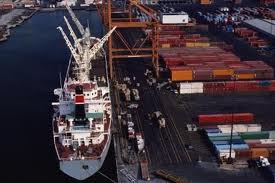The benefit caused by the increased domestic production in the tariff protected industry plus the increased government revenues does not offset the losses the increased prices cause consumers and the costs of imposing and collecting the tariff.
The effect of tariffs and trade barriers on businesses, consumers and the government shifts over time. In the short run, higher prices for goods can reduce consumption by individual consumers and by businesses. During this time period, businesses will profit and the government will see an increase in revenue from duties. In the long term, businesses may see a decline in efficiency due to a lack of competition, and may also see a reduction in profits due to the emergence of sub statutes to their products. For the government, the long-term effect of subsidies is an increase in the demand for public services, since increased prices, especially in foodstuffs, leaves less disposable income.
The benefits of tariffs are uneven. Because a tariff is a tax, the government will see increased revenue as imports enter the domestic market. Domestic industries also benefit from a reduction in competition, since import prices are artificially inflated. Unfortunately for consumers – both individual consumers and businesses – higher import prices mean higher prices for goods. If the price of steel is inflated due to tariffs, individual consumers pay more for products using steel, and businesses pay more for steel that they use to make goods. In short, tariffs and trade barriers tend to be pro-producer and anti-consumer.
Consumer Benefits
- On the surface, tariffs and quotas appear to hurt consumers by maintaining higher prices. However, protecting domestic jobs strengthens the economy by preventing increases in unemployment. Workers paid a reasonable living within the United States then have income available to spend on goods and services.
Environmental Benefits
- International trade raises several environmental concerns, including pollution resulting from transportation and the over-exploitation of natural resources in developing nations. Tariffs protect the environment by increasing export prices which reduces demand and therefore reduces the need for natural resources either to transport or manufacture goods.
Government Benefits
- The government receives revenue as a result of both tariffs and quotas. Tariffs are a tax on imported goods, and therefore directly benefit the governmental recipients.

















